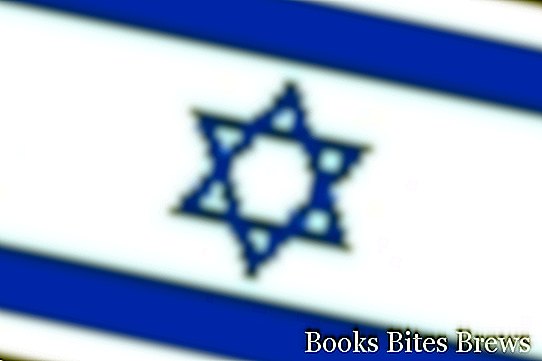Israel travel guide, useful tourist information for travel or vacation in this Middle Eastern Asian state, necessary documents, how to get there.
Israel in short
- Capital: Jerusalem
- Area in sq km: 20,770 sq km (27,799 sq km including the occupied territories)
- Population: 7,169,556 (2009)
- Religion: 80.5% Jews, 14.6% Muslims, 3.2% Christians, 1.7% Druze.
Where is it
The state of Israel is located in the Middle East Asia, bordered by Lebanon to the north, Syria to the north, Jordan to the east, Egypt to the south west and faces the Mediterranean Sea to the west.
The southern tip of Israle overlooks the Gulf of Aqaba, an inlet of the Red Sea.
The territory of Israel is formed by a fertile coastal plain which extends along the Mediterranean Sea.
This region is characterized by a high population density, in fact the large Israeli cities of Tel Aviv and Haifa are located here.
Inside, a series of reliefs follow from north to south, corresponding to the highlands of Galilee, Samaria and Judea.
To the east there is a deep furrow (Ghor) crossed by the Jordan River, partly occupied by the Dead Sea, in the deepest depression on earth, at 413 meters below sea level.
The southern part of the country is occupied by the Negev desert.
Hydrography
The main river is Jordan, which originates from Mount Hermon on the Lebanese-Syrian border and crosses beyond Israel, Lebanon, Syria, Jordan and Palestine before flowing into the Dead Sea.
In addition to the Jordan, the Yarqon River, which flows into the Mediterranean Sea north of Tel Aviv, has a relatively constant flow.
Lake Tiberias is almost entirely included in Israeli territory and has the Jordan River as its input and emissary.
Recommended readings- Tel Aviv (Israel): what to see on the spring hill
- Israel: useful tourist information
- Eilat (Israel): what to see in the seaside resort
The southwestern part of the Dead Sea also belongs to Israel.
Climate
In Israel, climatic conditions vary from region to region.
In summer, the climate is hot and dry throughout the country, with mild temperatures on the coast and higher in the interior of the country.
The cool and rainy winters of the coast become cold and frozen on the heights.
To the south, in the Negev, rainfall is very low and the climate is semi-desert.
Population
The majority of the population is made up of Jews (80%) and an Arab minority (20%).
Time zone
The time difference is 1 hour ahead of Italy throughout the year.
Spoken language
In Israel the official languages are Hebrew and Arabic. English is widely used.
Economy
Israel has a highly developed economy despite the complicated political and social situation and difficult natural conditions.
The country can count on a highly skilled workforce and abundant capital.
The main economic sector is that of high technology linked to the medical electronics, information technology, agro-technology and communications sectors.
The chemical, pharmaceutical, military, metallurgical and tourism industries are also important.
Agriculture is practiced at the highest level using artificial irrigation systems and using very advanced cultivation techniques.
The main crops are citrus fruits, cereals, vines, olive trees, fruit, cotton, tobacco and sugar beets, enough to cover most of the population's food needs.
Significant is the diamond processing industry which makes up 40% of the world market.
When to go
From a climatic point of view, the best months to visit Israel are spring (April and May) and autumn (September and October).
Necessary documents
To enter Israel, Italian citizens must have a passport with a residual validity of at least 6 months from the date of entry into the country.
In addition, the form 17L is requested where the incoming stamp is affixed.
A visa is not necessary for stays of less than 90 days. Tourists arriving to Israel by land from Egypt or Jordan can only stay for a month.
Phone
- The international code for calling from Italy to Israel is: 00972
- The international prefix for calling from Israel to Italy is: 0039
The GSM network covers the whole national territory.
Electricity
The electric current in Israel is 230V 50Hz. The sockets are of two types, two-pole European and three-pole Israeli. Therefore an adapter is required.
Money and credit card
The official Israeli currency is the Israeli New Shekel (NIS).
It is possible to exchange currency at the airport bank counters, post offices, most hotels and authorized exchange offices in large cities.
There are ATMs at most banks.
The main credit cards are widely accepted in hotels, restaurants, shops and museums.
How to get
The Israeli flag carrier EI AI and Alitalia offer direct flights from Rome and Milan to Ben Gurion international airport, which is located near the town of Lod, about 25 km from Tel Aviv.
Arkia Israel Airlines, the country's second largest airline, and Israir Airlines also connect Italy to Israel.
Vaccinations
No mandatory vaccinations are required to enter Israel. However, vaccinations against typhoid, hepatitis A and B are recommended.
In Israel, water is drinkable but it is preferable to drink bottled water and follow basic hygiene rules.
Before departure, it is recommended to take out health insurance that covers medical costs and any repatriation.




